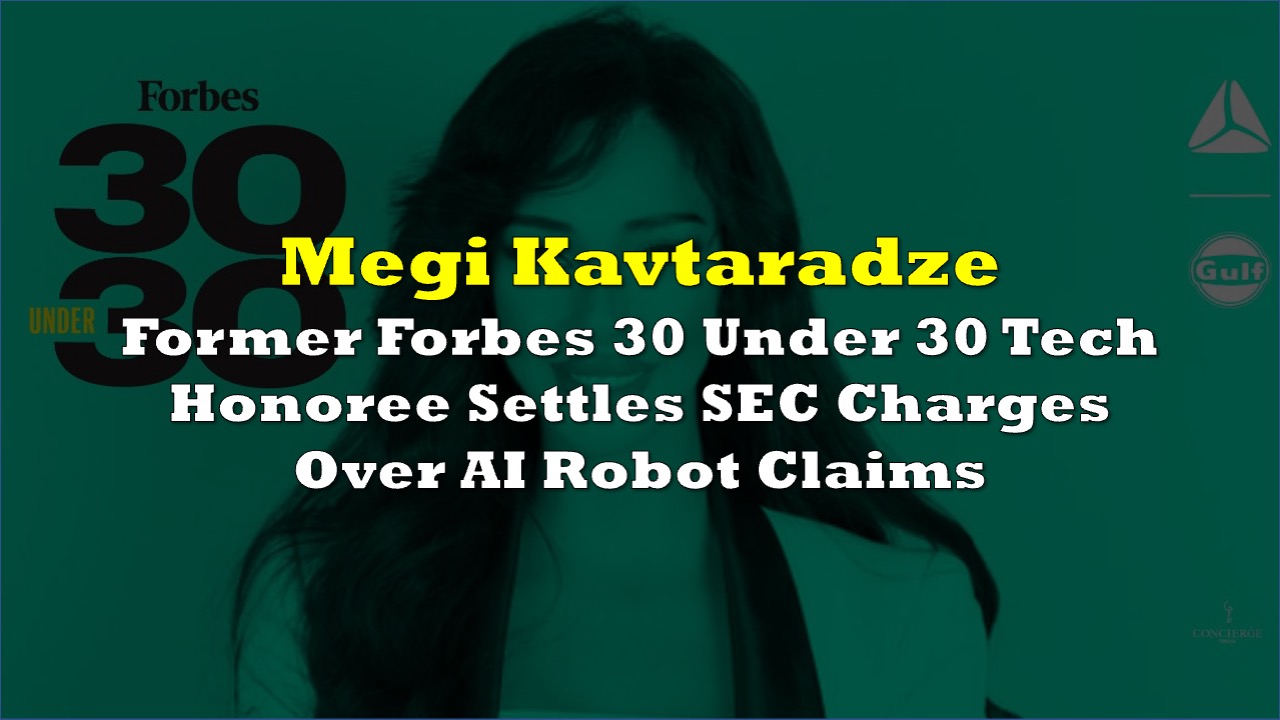A Miami-based artificial intelligence startup CEO, who was previously named to Forbes Georgia’s 30 Under 30 list, has agreed to pay more than $64,000 to settle Securities and Exchange Commission charges that she misled investors about her company’s ability to produce a humanoid robot companion.
The SEC alleged that Megi Kavtaradze and her company, Destiny Robotics Corp., raised approximately $141,000 from investors by making false claims about developing “the world’s first humanoid AI robot at-home assistant.” The company operated from Kavtaradze’s apartment in downtown Miami’s Monarc at Met building.
According to the SEC complaint, Kavtaradze misrepresented her qualifications, the company’s technological capabilities, and the projected timeline for product delivery. When Destiny presented its first prototype in February 2023, it was “a shoulder-up bust with a head capable of rotating with a white plastic shell lacking human facial features or hair,” falling far short of the promised humanoid companion.
The SEC also alleged that Kavtaradze falsely portrayed herself as an “experienced technology executive,” when she “had no significant experience as an executive in a technology company” and later admitted to having only self-taught technology knowledge. She was featured in Forbes Georgia’s 30 Under 30 list in 2021 for the technology category.
Forbes 30 under 30 to fraud pipeline remains undefeated pic.twitter.com/83QJkDMOOz
— VCs Congratulating Themselves 👏👏👏 (@VCBrags) October 28, 2024
Under the settlement approved by Miami federal court Judge K. Michael Moore, Kavtaradze agreed to pay $12,990 in disgorgement, $1,394 in interest, and a $50,000 civil penalty. While named as a defendant, the now-defunct Destiny Robotics faces no penalties.
Related:
- Forbes Reveals Its Hall of Shame, Names ‘Most Dubious People’ To Make Their Annual 30 Under 30 List
- Forbes 30 Under 30 Takes Another Hit: Inception Capital Wound Down After Founder Disappears For Weeks
The investigation revealed that Kavtaradze used investor funds for personal expenses, including MBA program application fees. A month before presenting the robot prototype, she had applied to six prominent MBA programs using company funds.
The crowdfunding campaign on Wefunder raised $141,455 based on promises that Destiny would deliver a humanoid hologram in 2022 and a robot in 2023. A subsequent crowdfunding attempt on TruCrowd was canceled after Kavtaradze learned of an investigation by the Financial Industry Regulatory Authority.
Kavtaradze, who now appears to be enrolled in an MBA program at UC Berkeley, declined to comment when reached by phone. The settlement neither admits nor denies the SEC’s allegations.
Information for this story was found via the sources and companies mentioned. The author has no securities or affiliations related to the organizations discussed. Not a recommendation to buy or sell. Always do additional research and consult a professional before purchasing a security. The author holds no licenses.









